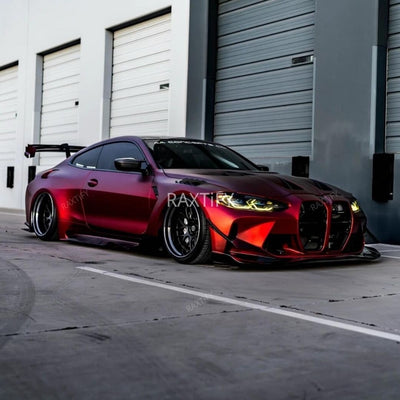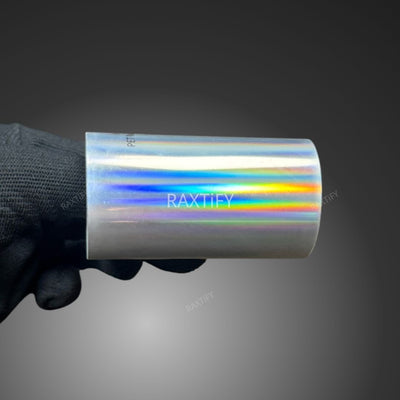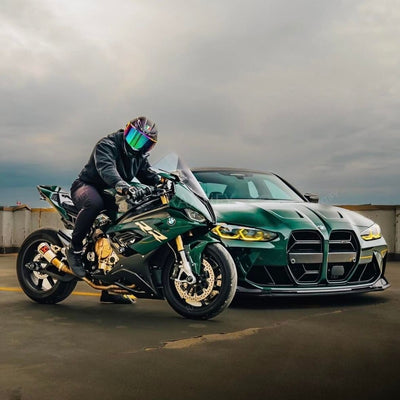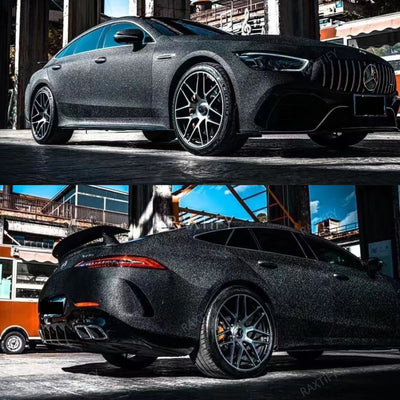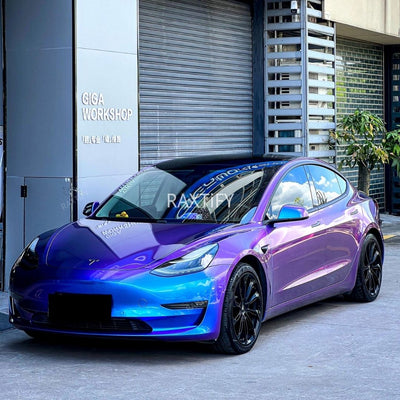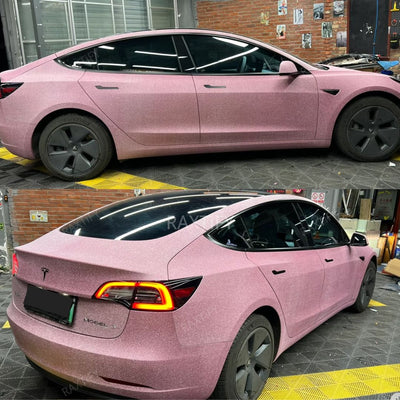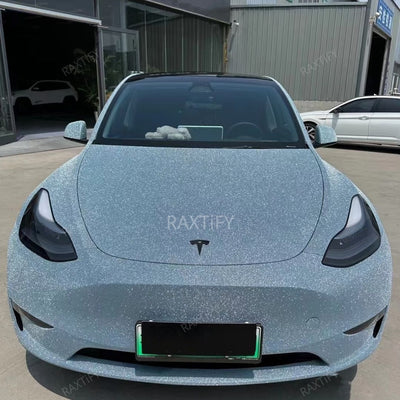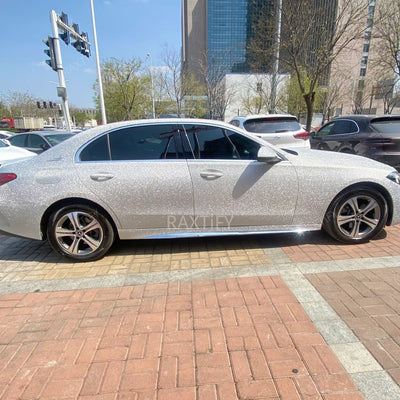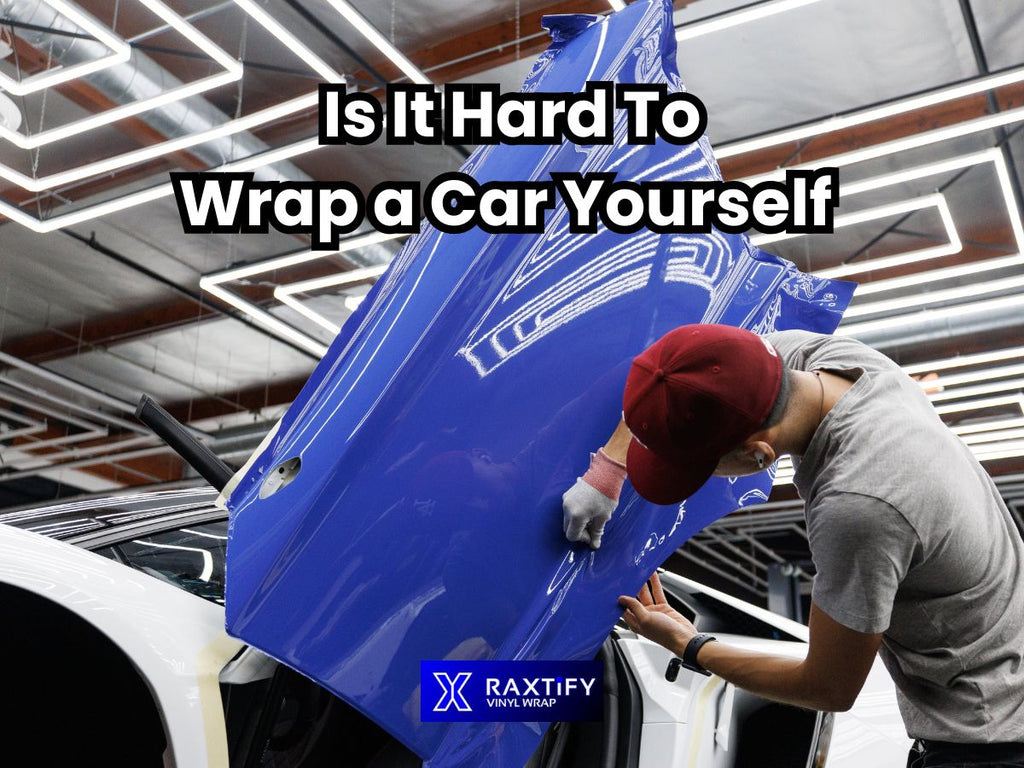
Written by RAXTiFY’s automotive wrap specialists, with over 10 years of hands-on experience in vinyl car wraps, paint protection films.
Introduction
It is not as easy as it seems to wrap a car with your own hands, particularly during the first attempt by a DIY car wrapper. Although it may seem easy to learn about the wrapping of the vinyl online, the preparation of the surface, accurate measurements, control over the temperature, and working with rather complicated shapes such as bumpers and mirrors is the real challenge. The lifting edges and the visible flaws may come about even due to small dust particles, the residues of wax, or ineffective trimming.
Even a complete DIY wrap requires a considerable amount of time, patience, quality equipment, and a second set of hands. DIY can be a fine endeavor in case you like practical projects and you can cope with learning curve. Nevertheless, when you want a perfect, paint like finish with the least amount of risk, it is normally better to hire a professional to install it.
What Makes Vinyl Application Challenging:
Several important issues to consider before starting the real code. To download & install, you need to pay attention to many details and that makes the process harder than it may seem at first glance. Below are the factors that combine to make applying vinyl so tough:
1- Ensure a Pristine Surface
Before you can begin the installation of a vinyl wrap on your vehicle, it needs to be prepared. You need to check the car outside properly and make sure, that the vinyl finish is not compromised on it. Other elements resulting in rust, and dents to peeling paint or environmental dirt on vehicles can all challenge the overall look of vinyl.
For dents and paint problems, it is recommended that you have a specialized body shop repair these before the installation of vinyl. If a solid prep job is done, the surface should be clean of contaminants before vinyl sheet application and no dirt or dust will be stuck under your sheets. While that's all above, if the car is not fully dry it results in vinyl adhering to a surface with water or dirt on top which makes for less than perfect adhesion to an imperfect finish.
Also, pay attention to the car's body because if you often wax your vehicle, there might be some of that waxy residue. However, residual wax can be an issue if you try to apply the vinyl afterwards. These spots include places like the weather trims, cracks and fenders so you need to look closely that all these areas are absolutely without any wax residues.
2- Planning and Precision
The installation will be a little more complicated, but with proper planning and measuring of your steps, you can handle the process. You cannot just wing the size of vinyl wrapping – you need to take proper measurements from both sides. Figuring out exactly how much vinyl is required for your car, plus 2–3 meters to spare. Though more time-consuming, comprehensive measurements mean a perfect body.
3- Essential Tools
The first and foremost step is to collect the tools required for applying. This is at least a little bit of good news in that anyone can access these tools, although as I will discuss later on there is still something to lose.
Important Tools: Squeegee, Scraper, WrapStick Flex, Heat Gun, Infrared Thermometer, Surface Cleaner, Microfiber Cloth, Small Magnets Blade, Tweezers Snitty blade Tape, Measure Masking tape, Gloves, Spray bottle, Clay Bar Isopropyl Alcohol
4- Controlled Environment
Environmental conditions are important in case you are planning a vinyl wrap to your car. Vinyl will work at mid-range temperatures, neither too hot, nor too cold. You would have to work under the shade and not under the direct sunlight on your vehicle. Lastly offer a dust-free working space because the sand grains can diminish connection and can also cause uneven seams. The setting of the process of wrapping will best work in a large garage with some warmth.
5- Complex Curved Pathways
Each vehicle has its twists and turns, which makes wrapping every car quite difficult. Covering these complex regions thoroughly is an art type. Some parts such as wing mirrors, bumpers and door handles are more efficiently wrapped off the car Of course, the journey is not so simple and full of roses. Correct removal of the old vinyl and reinstalled the replacement is crucial to eliminate any overlaps or shortages for more precision.
6- Efficient Vinyl Application: Time Management and Expertise
Although it may seem to just be a matter of sticking tape on your vehicle, applying Vinyl is slow and meticulous work that requires time as well as skill. Despite what it looks like, it's not a fast job, but rather one which requires lots of care and attention to fine detail. A full wrap, in particular, can take hours and hours to do.
It is important to know the intricacies of different vinyl sheets over others, as each material performs differently in the application. This information can determine how much difference the vinyl installation makes.
Well, the final trimming off of the vinyl is much harder than you might think, even if you're relatively sure you can swing it. Having excess material is necessary in order to create a smooth appearance because it requires achieving perfection with the amount of tuck.
Moreover, the complexity of wrapping becomes substantial when you account for needing help in doing it. But a single person could never hope to wrap an entire vehicle without yielding less-than-perfect results. A partner with the necessary skills, time and patience is important to make sure you achieve a professional finish.
Pros of Vinyl Car Wrapping
Before deciding on vinyl car wrapping, it's important to consider the pros and cons so that you can make a well-informed decision
Affordability:
If you choose to make use of a layer of vinyl, your automobile will continue the roadway in style and with an incredibly one-of-a-kind appearance. Vinyl wraps are available in a large array of finishes and patterns. Vinyl can replicate the textures of snakeskin, metal, glass or mirrors that are difficult to recreate with conventional paint.
Unique Aesthetic Appeal:
With vinyl, you can turn your car into a moving advertising agency. You can also use vinyl to make letters for text and patterns for images in your car, so that it becomes an ad-retention magnet.
Advertising Potential:
Preservation of Original Paint:
Vinyl car wrapping can assist in preserving the body paint, leading to a hike in resale value. Because the vinyl is removable, and peeling it back reveals the vehicle's original colour, this ability could result in a higher sale price.
Frequently Asked Questions
Conclusion
Is wrapping a vinyl car worth it? The true answer is not so easy, it is based on how much you know about DIY car wrap challenge at the start of it. The biggest surprise to many beginners is the fact that wrapping in vinyl is as difficult as it seems. Surface preparation, working on intricate curves, and heat control, as well as clean trimming, all present challenges of the first time in car wraps.
Although wrapping a car alone can be money-saving and gratifying, the lack of other hands-on helps to produce incorrect outcomes and wastage of the material. DIY can be a rewarding learning process in case you have time and love working with your hands, are able to tolerate flaws, and privy to mistakes. Nevertheless, the professional installation is in most cases the wiser and less stressful option when you are in need of a perfect finish or lack of time and space.







